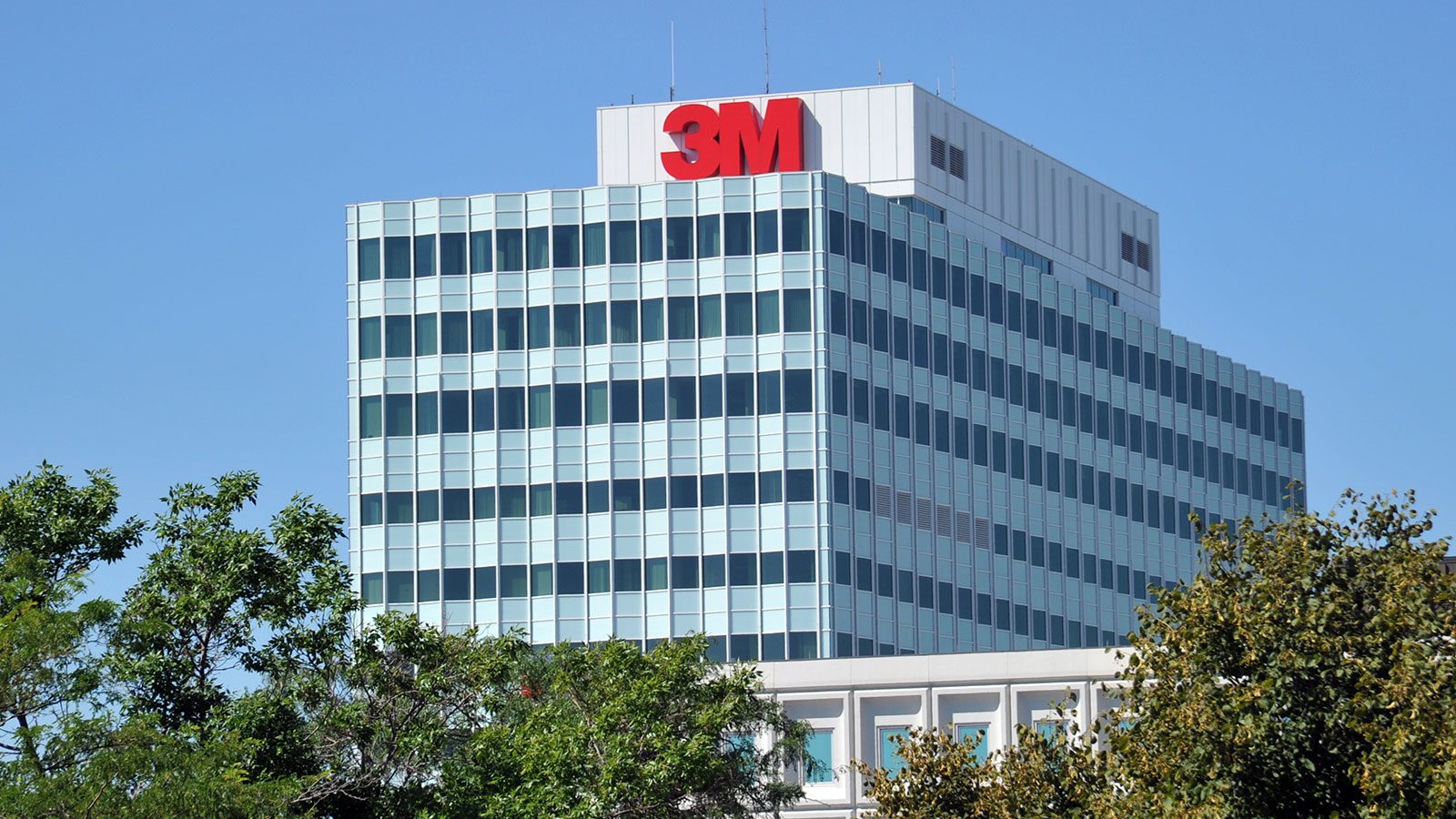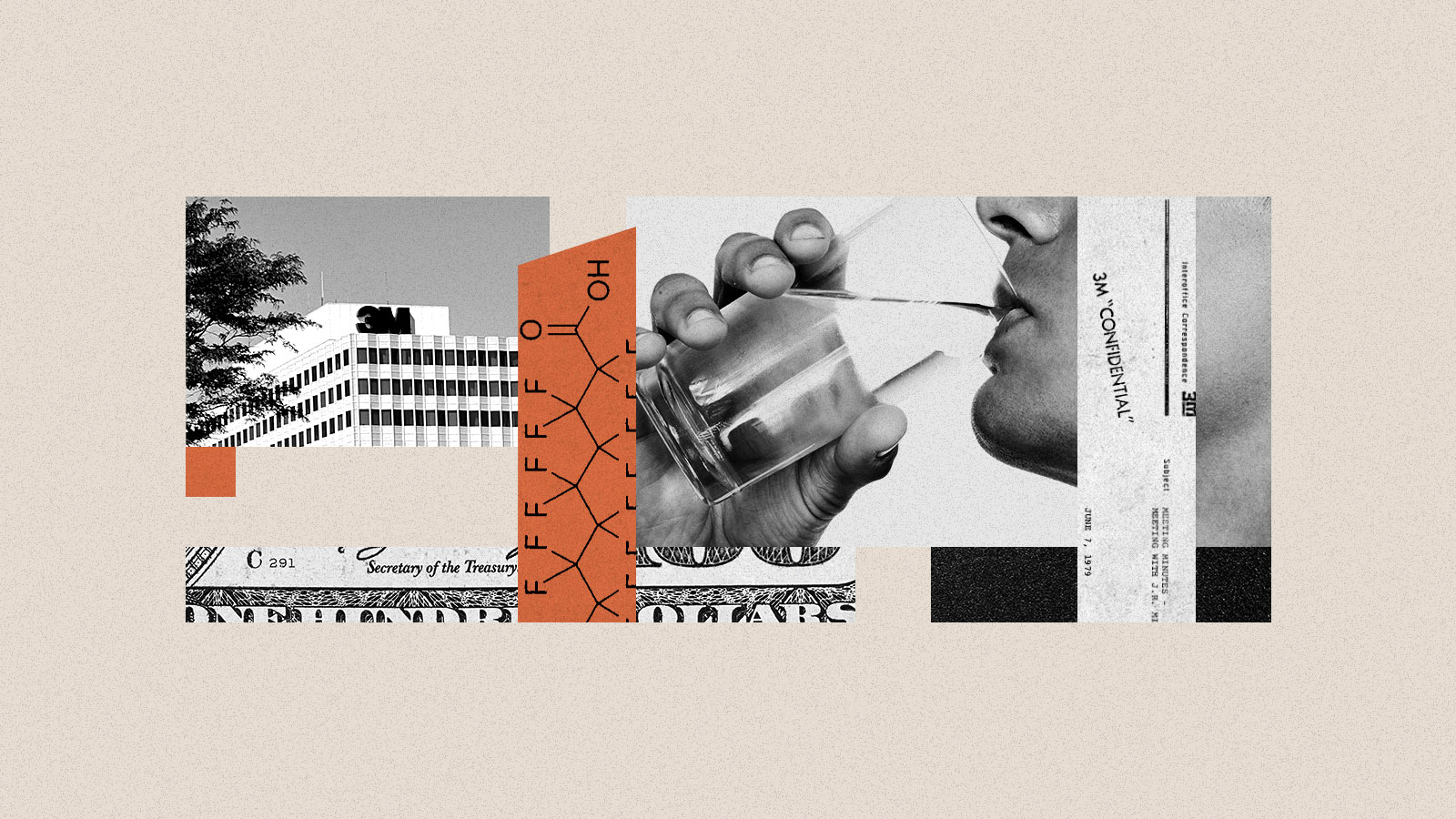Chemical and manufacturing giant 3M and a broad coalition of U.S. cities and towns have reached a landmark, $10.3 billion settlement over the company’s use of so-called “forever chemicals,” or PFAS, long linked to cancer and other major health issues.
If approved by a judge, it will be among the biggest mass tort deals in history.
The settlement comes after thousands of plaintiffs sued 3M for allegedly contaminating municipal drinking water supplies with PFAS — contamination, the parties allege, the company allowed for decades despite knowing as early as the 1970s that the chemicals were harmful to human and environmental health.
PFAS, or per- and polyfluoroalkyl substances, are popularly known for their use in firefighting foam and non-stick pans, but they’ve also been found in pizza boxes, seltzer cans, contact lenses, dental floss, mascara, rugs, sofas, and millions of other products Americans use on a daily basis. Studies show that the class of chemicals can weaken immune systems and contribute to long-term illnesses like diabetes, cardiovascular disease, and cancer — specifically, testicular, kidney, and prostate cancers.
The case at the heart of the lawsuits was brought by the city of Stuart, on Florida’s Gold Coast, which discovered it had harmful levels of PFAS in its water supply in 2016. Stuart officials traced the contamination to firefighting foam sold to the city by 3M for a decade in the late 1900s. The lawsuit sought to force 3M to pay for the cost of cleaning PFAS out of Stuart’s drinking water supply — but it was also selected to be a “bellwether” case, serving as a litmus test for some 4,000 other plaintiffs with similar claims.
Stuart’s lawsuit was set to begin in the first week of June, but the trial was delayed as both parties worked to reach a settlement agreement. The $10.3 billion settlement, first reported by the New York Times on Thursday, will be paid out over the course of 13 years and will cover current and future drinking-water claims brought by public water utilities if it is approved. Mike Roman, chairman and chief executive of 3M, said in a statement that the settlement was an “important step forward” for the company and builds on 3M’s plan to exit PFAS manufacturing entirely by 2025.
The settlement follows closely on the heels of a different PFAS settlement for $1.19 billion that three other chemical giants — DuPont, Chemours, and Corteva — agreed to pay out earlier this month. That settlement was also meant to address PFAS contamination in drinking water. Neither deal requires the companies involved to admit liability for the alleged harms caused by their chemicals.
An estimated 1 in 20 Americans have forever chemicals in their drinking water, and some analyses suggest that the price tag on filtering forever chemicals out of the country’s drinking water is more than $3.8 billion per year. The settlements will cover a good portion of the cost of remediating PFAS in drinking water supplies across the nation, an expensive endeavor that can rack up tens of millions of dollars per system.
“It’s good to have that much money on the table,” Carl Tobias, an expert in tort litigation at the University of Richmond School of Law, told Grist. He noted that the settlement does not cover the other types of lawsuits in the massive litigation against 3M — such as personal injury claims from firefighters who were exposed to forever chemicals in the line of duty or people whose properties have been affected by PFAS contamination. “We’ll just have to see how many cases possibly can be settled,” he said.
The settlement also sends a signal to future, would-be plaintiffs: Chemical companies appear willing to settle PFAS-related claims. It also sends a message to the chemical industry: Resolving PFAS complaints is good for business. In the days after DuPont reached its settlement earlier this month, shares of 3M and DuPont stock soared. Preliminary reports suggested 3M stocks rallied further after Thursday’s announcement.
“3M’s shareholders weren’t happy,” Tobias said, “so I think they needed to do this.”
Lawyers for Stuart told Grist they welcomed the settlement, and hinted at more to come. “We are happy to finally take this first step in cleaning up America’s drinking water of these insidiously toxic chemicals,” Ned McWilliams, an attorney at Levin Papantonio Rafferty, one of the firms representing the plaintiffs, said.




